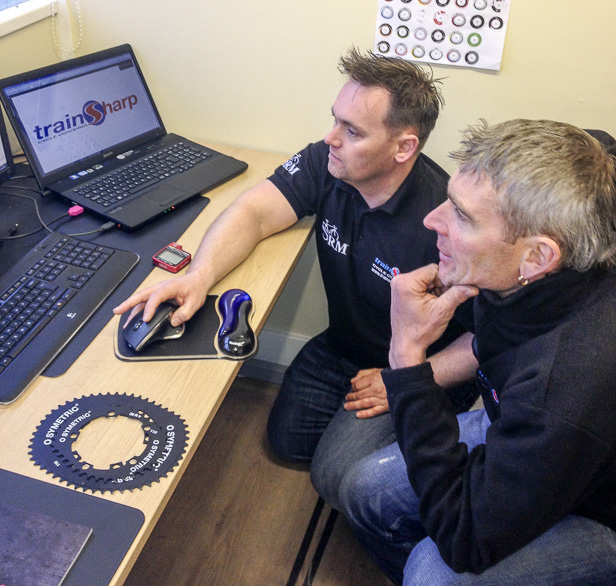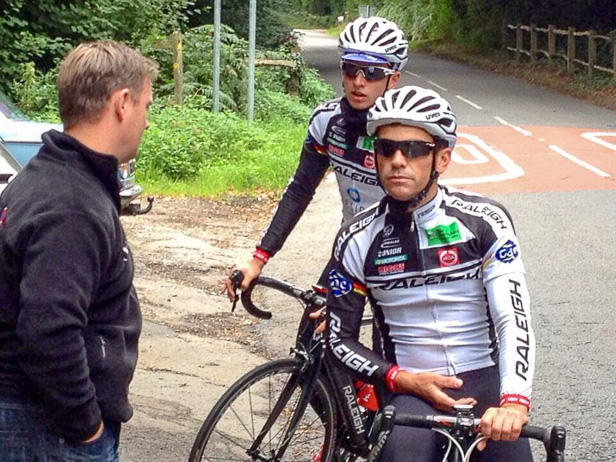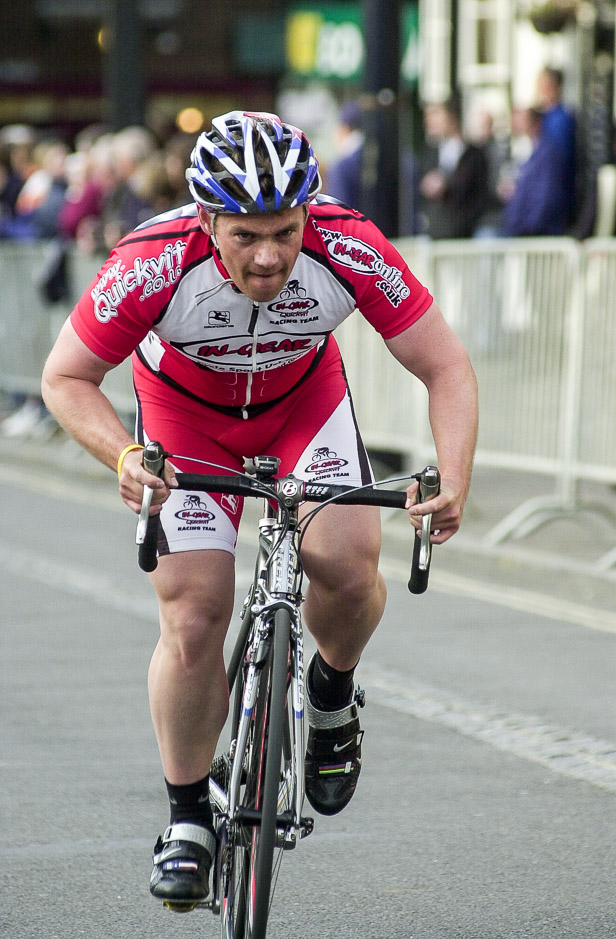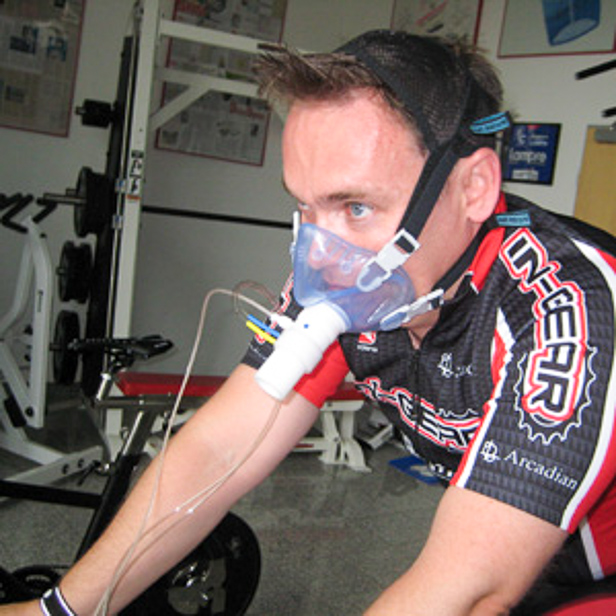Coaches, everyone has one these days and a name which keeps cropping up when we interview riders is that of Jon Sharples and his ‘TrainSharp Cycle Coaching’ company.
In time honoured VeloVeritas fashion we ‘had a word.’

What’s your background please, Jon?
“I was born in Lancashire in 1973 and began bike racing at the age of 16 when I lived in Sussex.
“I was pretty lucky that I had been blessed with a winning sprint, although cycle racing wasn’t easy for me, I wasn’t a natural aerobic monster therefore felt I would never make it as a pro – so I made sure I had a Plan B.
“I worked at the Sussex University as a college lecturer – that’s where I knew I had a passion for teaching others and sharing my knowledge.
“I have always loved the training aspect to sport – train smart and you will get the results you deserve.
“I guess the highlight of my racing ‘career’ is probably the year 2000 where I had what we call an ‘endless summer,’ I just felt no fatigue all season and enjoyed my racing a lot.
“A special memory was winning the Sussex Divisional Road Racing Championships that year.
“Towards the end of my racing days I was probably remembered for always having an affection for the race of truth – the time trial – the best man always won that event…”

How did Trainsharp come to be?
“The company Trainsharp has grown into a team of coaches organically and by word of mouth, really.
“I started out coaching a few riders from my home office, as it began to take off I dedicated more time and resources into it.
“Gradually I have built a team around me I see as the best and we now have a team of seven coaches plus staff, including Sean Yates, James McCallum, Dean Downing and sport scientists Elliot Lipski.”
Cycle training companies are becoming ever more prevalent – what’s your Unique Selling Proposition?
“It’s not anything particularly unique as such, but what we have that sets us apart, would be the spread of resources we can pull from for each individual rider we coach.
“We have the experience of British Pros, Elite road coaches, the race tactics and know-how of a World-Class Directeur Sportif and the understanding of physiological adaptations from a sport science perspective; all this together makes for the perfect “bank of knowledge” that all of our riders benefit from.”
Sean Yates is one of your coaches – has he become a bit more scientific these days ?I remember those tales of huge training runs…
“Sean we still call the ‘enforcer’ and is still very much a traditionalist, he still rides his bike in to work every day, no matter the weather, and normally in just shorts and a jersey!
“But he has taken on board so much from his time spent with Sky and I am sure will benefit from his time at Tinkoff.
“His discussions with our Lead Sport Scientist Elliot often become a good listen, but one thing they both agree on is that there is no substitute for a six hour ride and the physiological adaptations you get from it.
Elliot is just trying to convince him that seven days of back to back six hour rides isn’t always the best option for everybody!”
What’s best to train by, heart rate or power – and why?
“Both, together.
“But if it was a choice between the two: Power.
“It doesn’t lie to you, your heart rate variability is huge and can be deceiving, power is consistent and the perfect training tool and race partner.”
I notice you have a client in Oman…
“Yes, we’ve had clients all around the world you don’t need to live next door to your coach these days.
“With technology you can access people remotely anywhere in the world; Dubai, Austria, France etc. lots of different time-zones!
“USA is now becoming aware of the Trainsharp brand and our coaching is starting to take off over there now too – exciting times for the company.”
How many clients can an individual coach handle?
“It depends on the coach and the level of coaching the rider has opted for, some packages provide a much higher level of service and feedback and some are more of a ‘plan and go’ format.
“It’s all down to the rider and how they perform best with which level of service, we are very flexible in working around the needs of the rider.”
There’s you and Sean – and who else?
“Trainsharp has an ever growing number of team staff; our dream is to create a ‘centre of excellence’ including the best UK coaching.
“Right now we have many staff behind the scenes that help with the smooth running of business which includes seven coaches directly working under Trainsharp, we also work closely with a number of other professionals at the top of their game in their respective fields.”

You have pro riders for clients – how does that dovetail with team management?
“Lots of pro-riders now have personal coaches; it’s all about the rider/coach relationship over years of getting to know each other, a friendship and a business relationship at times too – and just because a rider changes team in his career it may not mean he has to change his training style and his coach.
“As long as the communication between the team management staff is there it works seamlessly, the delivery of the rider to their races in the best shape is the ultimate goal.
“We have a good network of teams and now they are coming to us to place riders within their respective teams.
“That is something we have worked hard on in recent months; building the relationship and respect from teams for our judgements on talented riders coming through the ranks – and the riders also know Trainsharp can help them on their quest for success – pro cycling is a bit like X factor now.
“It’s hugely popular and there is a queue of young riders all pursuing the same dream!”
Are more sportive riders coming to you?
“The sportive market has always been a large percentage of our client base, but for sure, it’s ever growing.
“Sportive riders don’t seem to have the desire to train as much for their event, sometimes they feel they don’t deserve a coach but times are changing.
“A coach can ensure they make the most of time because of their busy lifestyle – and helping them stay healthy over winter.
“A healthy person is a productive person, not just on the bike but at work too.
“We eliminate the guess work for what they need to do on the bike each day so the rider doesn’t spend all day dreaming about what to do, more importantly preventing panic training!
“City workers are generally the larger percentage of sportive riders wanting to have a coach.
“They are severely ‘time crunched’ and Trainsharp help them use the gym and train with colleagues – businesses generally organise group entries to cycling events and we cater for groups with coaching keeping it sociable, fun and realistic to the available time.
“The cycling industry is still growing.
“Generally sportive and recreational riders are often the ones that improve quickest and that is a great feeling as a coach, watching someone improve and enjoy the bike.”

Triathlon coaching must be a pretty technical business?
“In a way it’s similar. All of the triathletes we work with have benefited greatest from the bike sessions we provide.
“Triathlon as a sport is about managing and juggling fatigue, by taking a helicopter view over the training load – reducing weekly training sessions, spotting the missing workouts and making sure the ones that they do are the most productive ensures that they absorb the workload.
“Most triathletes are panic training three disciplines and generally are doing much of the same thing – they don’t take into account the life energy pond – your family, work and training all drain the energy. It’s not just the exercise that makes you feel tired; it can be poor sleep due to many things like financial worries or excitement. You must know when to back off.
“Less is often more and mostly a triathlete just trains the same way due to old habits.
“It’s the same with cycle racing, making sure the body and mind is ready will allow you to finish/win the race!”
What’s been your most satisfying moment as a coach?
“Honestly, watching the company grow; that way I know that what I (and my team) are doing is working, the riders are happy and in turn I can take on more riders and take on more staff, and the business continues to grow.
“Of course, there are so many rider success stories which I also consider to be highlights.”
I notice on your website that you say o.symetric chainrings give; ‘better long term muscle development and recovery?’
“O’symetric rings constantly alter the gear ratio from a big gear to a small gear. They are designed around how the muscles produce force as they all engage and help to pedal in a perfect circle. The rings are designed to focus on efficiency throughout the stroke.
“The strongest part of the pedalling phase is the pressing down with your body weight on top (so it makes sense to increase the size of the gear there) – you can press a much larger gear down. The hardest part of the pedalling is the pulling it back – named the dead spot – this uses much smaller and weaker muscles to do this causing more effort on the muscles thus creating bigger fatigue and lactate so it makes sense to make the gear small in this phase.
“Have you ever ridden a 25mile time trial and felt as though you left your horse somewhere afterwards – well you won’t walk funny afterwards if you use the O’Symetric rings. By constantly altering the gear ration to match the strength of the working muscles keeps angular velocity constant – or cadence constant. They don’t feel like they go slow and then fast like some believe.
“The feedback from the public has been amazing. Some have said; ‘I was unsure about the rings and after three months I took them off. Then the penny dropped.
“The round rings are not making the most of your pedalling – it feels too easy when pressing down – so I put the O’Symetric rings back on’.
“To recap – it’s all about the distribution of force throughout the pedalling circle – by maximising your ‘downstroke’ and essentially increasing the chain ring tooth profile at this point.”
What’s the biggest mistake you come up against with bike fit?
“Oh, there are quite a few here, everyone has become a bike fitting expert – an example is time triallists lowering the front end to get “more aero” and therefore “faster”.
“This is simply not true.
“There is always a trade of between aerodynamic drag and power produced and more often than not, power wins over.
“By bringing yourself up at the front end, you open up your hip angle and we often find an extra 80 Watts just by doing this.
“I’m not going to give anymore aero secrets away but at low speed , it’s not the drag you should spend so much time worrying about, it’s all about making the back wheel go faster!”

What’s the biggest mistake people make in training?
“Training too hard!
“This often happens when riders have a disastrous result in a race or can’t hit the prescribed interval numbers.
“They then go out for another ride and smash themselves a bit more thinking they have lost form rather than recognising they are actually in need of a rest.
“Also, when form is here, a rider is ‘flying’ and they feel good they then seem to get a little greedy or unrealistic about things and think; ‘wow, so if I do a bit more training imagine how fast I can go then?’
“Form is very hard to find and very easily wrecked – recognising the signs and preventing mistakes is a big deal on the bike.
“Ultimately most riders end up digging a metaphorical hole of fatigue that is hard to get out of. As an athlete, it is very hard to know when to stop and take stock.”
Why should a rider get a coach?
“From experience, everyone needs a coach; even a coach needs a coach! Having a coach is like having buddy to bounce the ideas of training off of, someone from the other side of the fence that you trust who has your best interests at heart and that can give you the advice when needed.
“And being accountable to a coach makes you perform the sessions and not slip into the ‘I cant be bothered’ slippery slope. A coach is someone to remove the guesswork of training, ensure you are training your weaknesses and ensuring that your training will make you ready for the chosen event.
“Our mantra is :
“One of the biggest challenges we face is juggling lifestyles; particularly when you’re trying to squeeze in meaningful training for cycling.
“We at Trainsharp will match the training to your lifestyle, working with your body and working with your talent.
“Whether you’re an everyday rider or among the elite, we’ll develop a two way relationship with you so that we fully understand and appreciate where you’re coming from and where you want to end up.”



